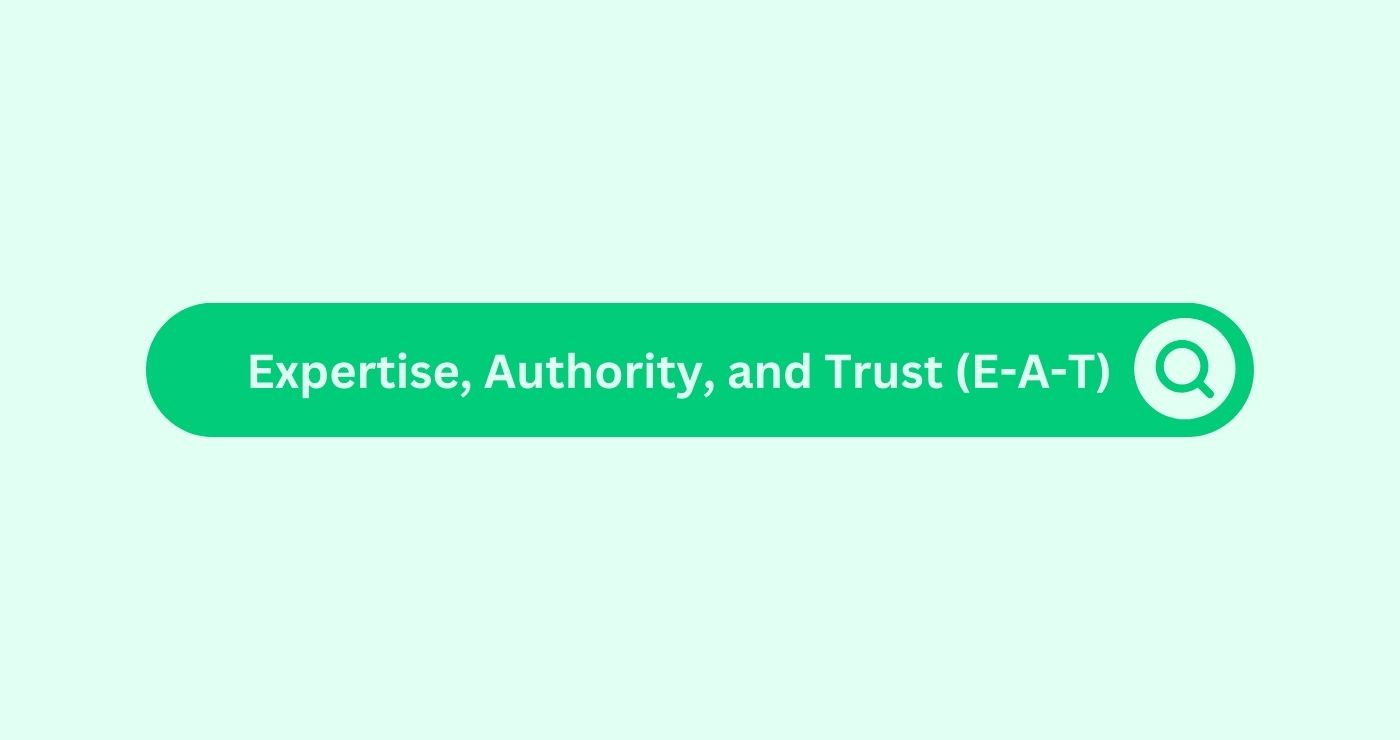What is Expertise, Authority, and Trust (E-A-T) in the context of SEO?
Expertise, Authority, and Trust (E-A-T) are essential factors that search engines like Google consider when evaluating the quality and relevanceDefinition In SEO, relevance refers to the degree to which a... More of a website’s content. E-A-T helps search engines determine the credibility and reliability of a website’s content, which can impact its rankings in search results.
Definition
Expertise refers to the level of knowledge and skill demonstrated by the content creator or website author. Authority relates to the perceived credibility and influence of the website or content creator within their industry or niche. Trust pertains to the reliability and integrity of the information provided, as well as the transparency and legitimacy of the website itself.
Example of how E-A-T works
A website providing medical advice should have content created by qualified healthcare professionals (expertise), with references from reputable medical organisations (authority), and clear citationsDefinition Citations, in the realm of SEO, represent referen... More and sources for its information (trust). By demonstrating expertise, authority, and trustworthiness, the website can improve its search engine rankings and gain credibility with users.
Key Takeaways
- Content Quality: High-quality content created by experts in the field enhances expertise and authority.
- Author Reputation: Establishing a strong reputation and authority within the industry boosts trustworthiness.
- External Validation: BacklinksWhat are backlinks in the context of SEO? Backlinks, also kn... More from authoritative websites serve as endorsements of a website’s expertise and authority.
- Transparency: Providing clear author information, citationsDefinition Citations, in the realm of SEO, represent referen... More, and sources increases trustworthiness.
- Consistency: Consistently delivering accurate and reliable information builds long-term trust with users and search engines.
FAQs for Expertise, Authority, and Trust (E-A-T)
How does Google evaluate E-A-T?
Google assesses E-A-T through various factors, including content quality, author expertise, backlinksWhat are backlinks in the context of SEO? Backlinks, also kn... More, and user feedback.
Is E-A-T a direct ranking factor in Google's algorithm?
While Google hasn't explicitly stated that E-A-T is a direct ranking factor, it indirectly influences rankings by impacting content quality and relevanceDefinition In SEO, relevance refers to the degree to which a... More.
Can small websites demonstrate E-A-T effectively?
Yes, small websites can demonstrate E-A-T by focusing on niche expertise, building authority within their industry, and providing trustworthy information.
What are some ways to improve E-A-T for a website?
Strategies include creating high-quality content, showcasing author expertise, building authoritative backlinksWhat are backlinks in the context of SEO? Backlinks, also kn... More, and maintaining transparency.
Does E-A-T apply to all types of websites?
Yes, E-A-T is relevant for all websites, but its importance may vary depending on the nature of the content and the level of expertise required.
How can I improve my website's authority?
You can improve authority by obtaining backlinksWhat are backlinks in the context of SEO? Backlinks, also kn... More from reputable websites, participating in industry-related events or discussions, and producing authoritative content.
What role does user experience (UX) play in E-A-T?
Positive user experiences, such as fast page loading times and intuitive navigation, contribute to a website's trustworthiness and authority.
Are there specific guidelines for demonstrating E-A-T in different industries?
While there are general principles for E-A-T, Google may have specific guidelines or expectations for certain industries, such as medical or financial sectors.
Can social media activity influence E-A-T?
Active engagementWhat is engagement in the context of content marketing? Enga... More and positive sentimentDefinition Sentiment in the SEO space refers to the emotiona... More on social mediaWhat is Social Media? Social media refers to online platform... More can indirectly impact E-A-T by signalling popularity and authority within a niche.
How long does it take to see improvements in E-A-T reflected in search rankings?
Improvements in E-A-T may take time to reflect in search rankings, as they depend on factors such as content updates, backlink acquisition, and user feedback.




